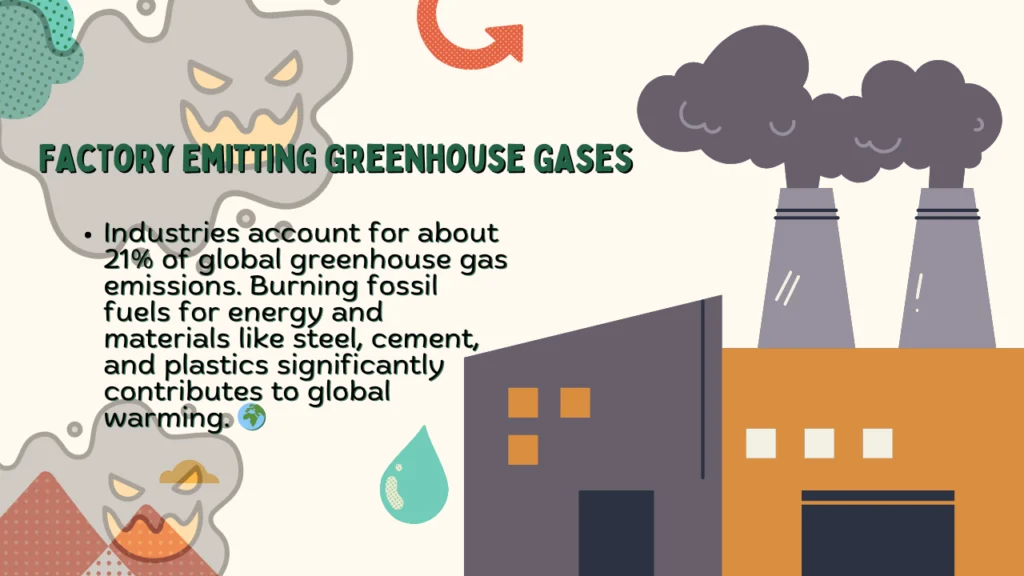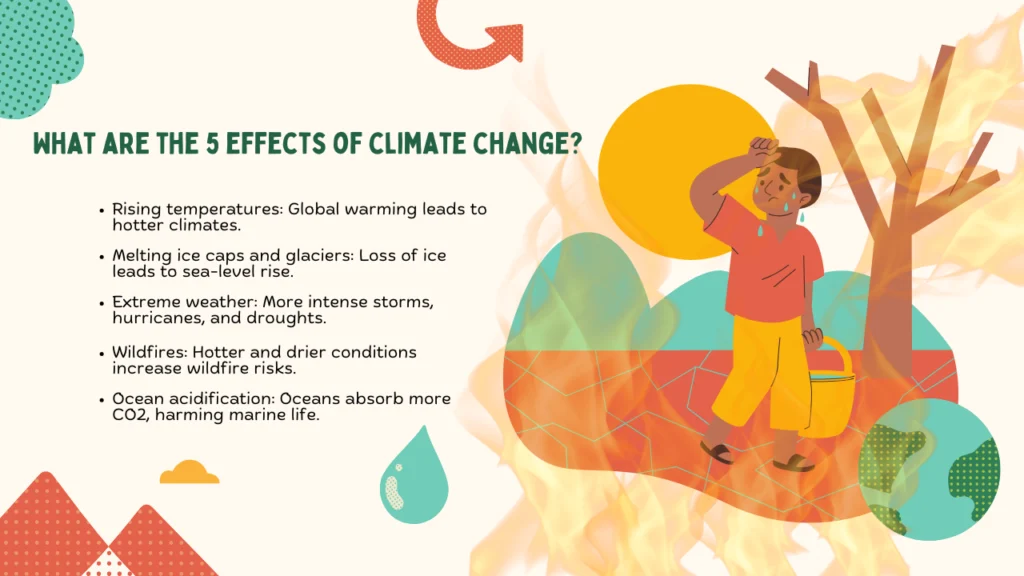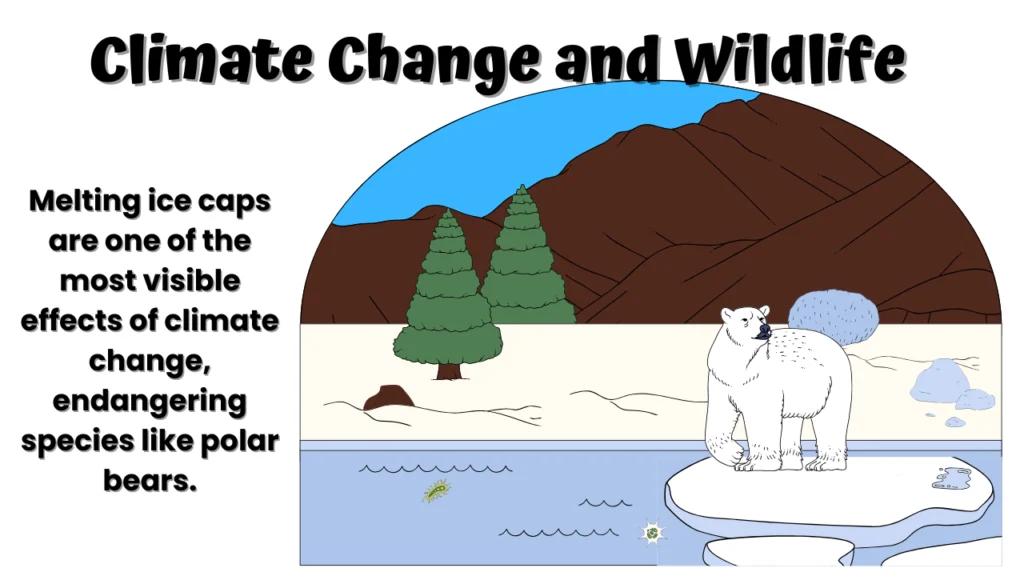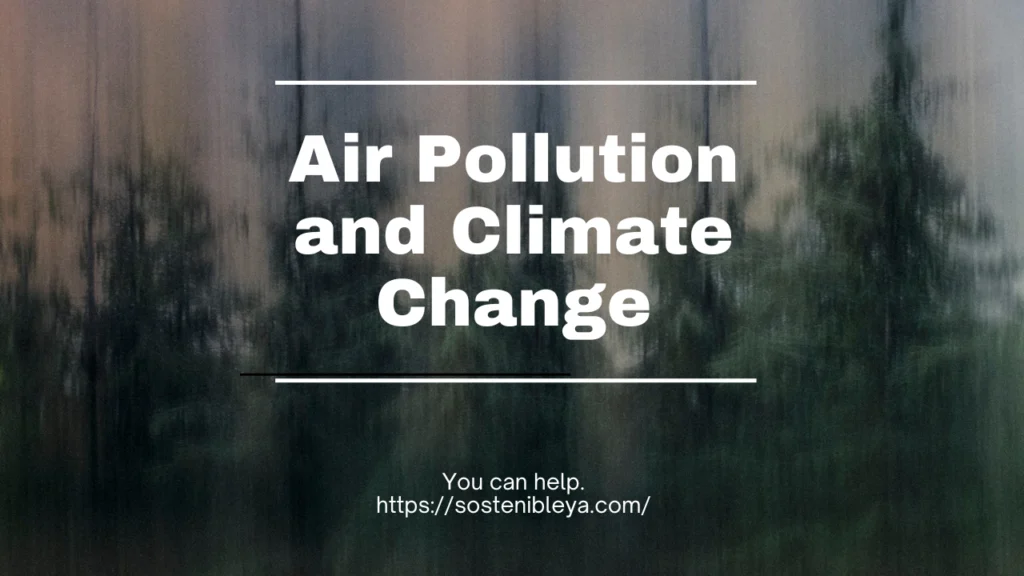What are the 7 Effects of Climate Change? 🌍

Climate change is one of the most significant challenges facing our planet today. Its effects are not only widespread but also increasing in severity as global temperatures continue to rise. This article delves into the seven key effects of climate change, explaining their impact on both our environment and daily lives.
1. Longer and More Intense Allergy Seasons 🌸
Warmer temperatures are causing plants to release pollen for longer periods, resulting in extended and more intense allergy seasons. This is particularly noticeable in regions like the northern United States, where seasonal allergies have become more severe. Increased pollen can exacerbate conditions like asthma, leading to more frequent hospital visits.
2. Food Becomes Less Nutritious and More Expensive 🥕
Climate change is affecting the nutritional quality of food. As CO2 levels rise, crops like wheat, corn, and rice grow faster, but with less nutritional content. This process, known as “carbon fertilization,” leads to food that is higher in carbohydrates but lower in essential nutrients like protein, iron, and zinc. Droughts, which are becoming more frequent due to climate change, also contribute to rising food prices, affecting global food security.
3. Increasingly Severe Heatwaves 🔥
Heatwaves are becoming more frequent, intense, and longer-lasting. These extreme weather events can have devastating effects on health, infrastructure, and the environment. For example, in recent years, heatwaves have caused roads to melt in various parts of the world, including the United States and Australia, while also increasing the risk of wildfires.
4. Wildfires Threatening Communities and Ecosystems 🌲🔥
As temperatures rise and droughts become more common, wildfires are becoming a significant threat to communities and ecosystems. Wildfires not only cause loss of life and property, but they also lead to poor air quality, which can have long-term health impacts on people living in affected areas. Forests that burn also release large amounts of carbon dioxide, exacerbating climate change.
5. More Intense and Frequent Hurricanes 🌪️
Rising sea surface temperatures are providing the perfect conditions for more powerful and destructive hurricanes. These storms are becoming more common in regions around the world, with stronger winds, heavier rainfall, and increased flooding. Hurricanes like Maria, Irma, and Harvey demonstrated how unprepared many areas are for the intensifying effects of climate change.
6. Climate-Driven Migration 🚶♂️🏞️
Climate change is already forcing people to leave their homes due to natural disasters, drought, and rising sea levels. Regions in Sub-Saharan Africa, South Asia, and Latin America are particularly vulnerable, with millions of people expected to be displaced by 2050. Migration due to climate change can exacerbate social tensions and lead to conflicts over resources like water and arable land.
7. Spread of Diseases 🦠
Warming temperatures and changing weather patterns are creating ideal conditions for the spread of diseases. Insects that carry diseases like malaria and Lyme disease are thriving in warmer climates, moving into new areas that were previously too cold for them. Waterborne diseases are also increasing as warmer waters provide a breeding ground for bacteria and viruses, further threatening public health.
How Does Climate Change Impact Energy Generation and Consumption? ⚡
Climate change is closely linked to the way we generate and use energy. Burning fossil fuels like coal, oil, and natural gas for electricity and heat remains one of the largest sources of global carbon emissions. However, renewable energy sources like wind and solar are becoming more important in the fight against climate change, as they emit little to no greenhouse gases. Transitioning to clean energy is a critical step toward reducing the severity of climate change’s effects.
For more insights on the relationship between energy and emissions, check out our article on What Is the Fastest Growing Renewable Energy in the World?.
Solutions to Mitigate Climate Change 🌱
Addressing the seven effects of climate change requires a global effort. Some key solutions include:
- Transitioning to renewable energy: Wind, solar, and geothermal energy are essential in reducing dependence on fossil fuels.
- Improving energy efficiency: Homes, buildings, and industries can reduce emissions by using energy more efficiently.
- Protecting forests and promoting reforestation: Forests act as carbon sinks, absorbing CO2 from the atmosphere.
- Sustainable agriculture: Practices like reduced fertilizer use and promoting plant-based diets can help lower greenhouse gas emissions from food production.
- Carbon pricing and emissions trading: These economic tools encourage businesses to limit their carbon emissions and invest in cleaner technologies.
Conclusion: Urgency for Climate Action 🌍
The seven effects of climate change are already altering our world, and their impact will only increase if we fail to act. Reducing greenhouse gas emissions, transitioning to renewable energy, and protecting natural ecosystems are essential steps in addressing this global crisis. While the challenge is immense, we have the tools and knowledge to mitigate these impacts if we act swiftly and decisively.
FAQs: Climate Change 🌍
How does climate change affect our lives?
Climate change impacts us by increasing extreme weather events, disrupting food systems, raising sea levels, and threatening human health.
What are the 7 effects of climate change?
The seven key effects are longer allergy seasons, less nutritious food, more heatwaves, more wildfires, stronger hurricanes, climate migration, and the spread of diseases.
Why should we stop climate change?
Stopping climate change is critical to prevent catastrophic environmental, social, and economic impacts, including food shortages, loss of biodiversity, and more frequent natural disasters.
What can humans do to stop climate change?
Humans can reduce fossil fuel use, promote energy efficiency, transition to renewable energy, protect forests, and support policies that reduce emissions.
Will the Earth cool down again?
Without drastic reductions in greenhouse gas emissions, the Earth will continue to warm. However, it is possible to slow or stop this trend if we act now.
Is it too late to fix climate change?
While it’s not too late to mitigate the worst effects of climate change, immediate action is needed to reduce emissions and transition to a more sustainable future.



